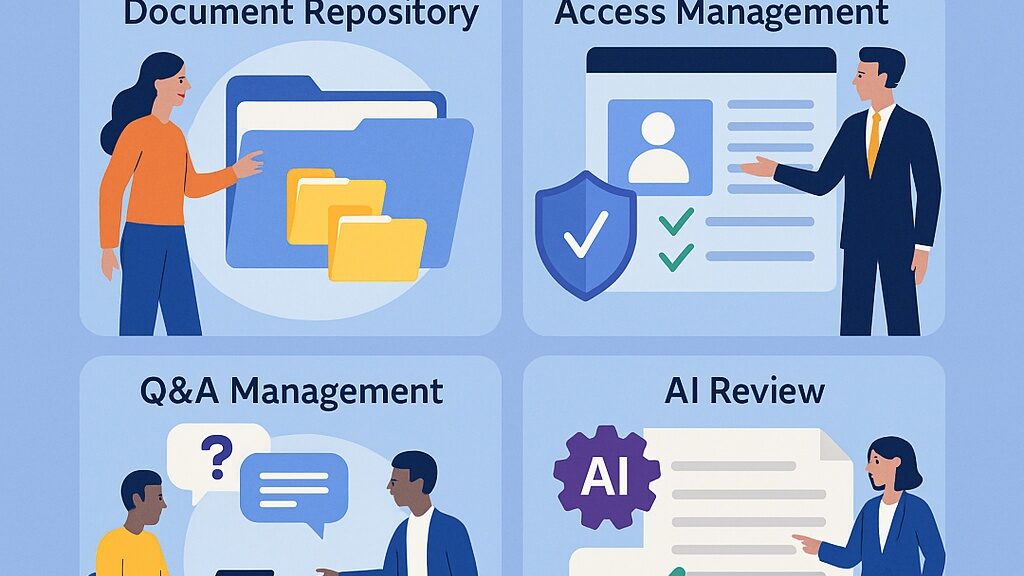The success of due diligence doesn’t just rely on the shared information – it also depends on how people structure, access, and track this data. A deal’s outcome, be it a corporate buyout, equity investment, or regulatory compliance check, can speed up or slow down based on the tools used. A cutting-edge data room due diligence setup plays a key role in this process serving as the deal’s control center.
But what actually makes up a due diligence toolkit? More than just spreadsheets and scanned contracts, the main thing is to combine document control, teamwork, and supervision — all within a safe smart system.
Central and Indexed Document Storage
The base of any toolkit is a document storage that does more than just store. A good VDR has pre-made folders based on deal type — money legal, IP, HR tax — and lets you drag-and-drop files with auto-indexing.
Searching full text using filters, and tracking versions help buyers and advisors find what they need , not . For sellers, this setup cuts down on delays, shows they’re ready, and stops holdups that can shake trust or mess up talks.
Role-Based Access Management
Good due diligence needs many people to look at the same data — but not all at once, and never with the same access level. Role-based access lets teams set rights for viewing, downloading, printing, or editing each file and user group.
Teams can watermark and lock documents with time-based expiry. Top VDRs even allow dynamic watermarking and IP-based limits. This stops information leaks and supports strict internal rules for legal, financial, and compliance experts.
Integrated Q&A to Control Communication
Due diligence often leads to hundreds of questions from buyers and their advisors. Without a structured system, these queries spread across emails and calls resulting in clashing responses and lost threads.
Data rooms with brains come with a Q&A feature built right in. People can give out, answer, bump up, or label questions inside the system. This keeps the process honest and creates a clear searchable record of all the back-and-forth.
AI Helps Review and Hide Stuff
When deals need to happen fast, looking through things by hand can slow you down. Now, AI tools scan uploaded files to spot sensitive info — from money details to company secrets — and cover it up on their own.
These tools also find duplicate files, point out missing parts, and suggest where to put folders. This kind of tech lets lawyers focus on making deals instead of playing document police.
Audit-Ready Tracking and Reporting
Data rooms should log every action – from views to downloads. This ensures accountability and can prove crucial in post-deal reviews or regulatory inquiries. The best VDRs offer downloadable reports that show user behavior, access patterns, and Q&A history.
These insights help deal teams gauge buyer interest get ready for integration, and handle audits with confidence.

